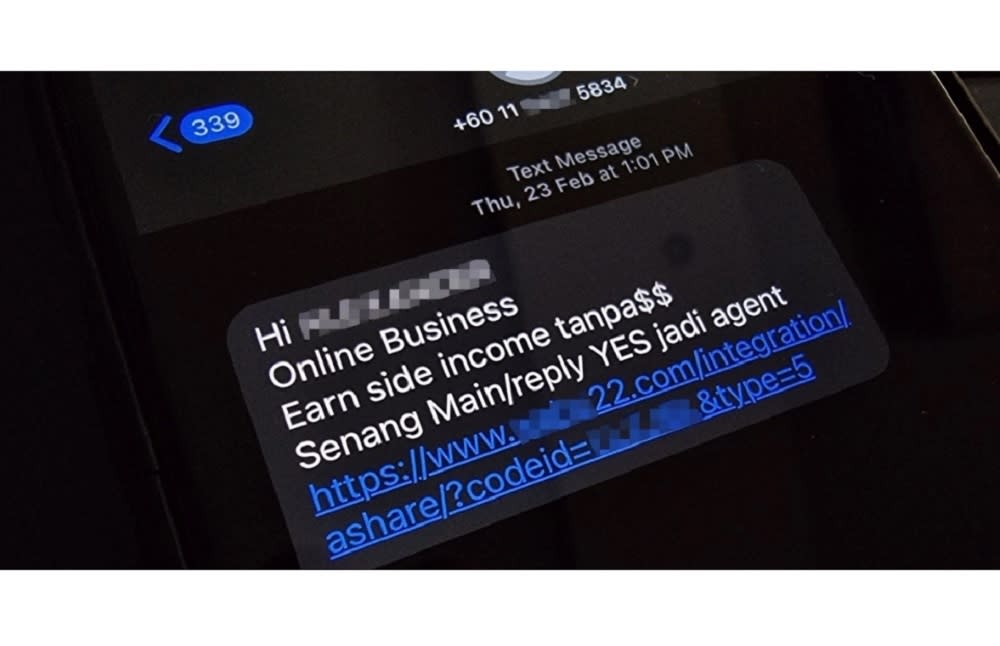Maxis to block SMS containing links starting May 2, in fight against online scams

KUALA LUMPUR, April 29 — In an attempt to address online scams, the Malaysian Communications and Multimedia Commission (MCMC) has recently directed all telcos in the country to block links sent via SMS.
It appears that Maxis is the first telco to comply with the directive as it will start blocking SMS containing URLs from Tuesday, May 2, 2023.
According to Maxis, the blocking of such SMS is aimed at preventing users from becoming victims of online scams. The block will be applicable for SMS sent or received from local and international mobile numbers.
Once the blockage is enforced, you will not be able to send or receive SMS containing links to/from other mobile numbers. The FAQ also states that if you attempt to send a link via SMS, you will not be charged for it as the SMS will be blocked and returned as failed.
It is worth noting that the blocking of SMS with links will be done in stages starting with SMS sent between individual mobile numbers. Blocking of SMS containing links sent by businesses via shortcodes such as 6XXXX, 2XXXX and 1XXXX will be done later and these business accounts will be notified.
If you need to share a link with someone, Maxis advises you to share the link via social apps or other instant messaging platforms such as WhatsApp, Facebook Messenger or WeChat. Maxis also reminded users not to click on links sent by strangers. If you need to access your eWallet or online banking account, you should always use the official app or visit the website, instead of clicking through a link.
Phishing scams are on the rise as scammers are using various tactics to trick victims into sharing their online banking or eWallets credentials and OTP. Some of the spotted scams include compensation for TNB blackout, free cash aid from MySejahtera and free eWallet credit for B40/M40. The scams are so convincing that most victims don’t realise that they are entering their username, password and OTP on a fake website.
To curb such scams, Bank Negara Malaysia (BNM) has directed all financial institutions to implement more stringent security measures such as moving away from SMS-based OTP and implementing a cooling-off period to delay scammers from accessing your account on a new device. Last month, Touch ‘n Go eWallet announced that it is the first eWallet to implement BNM’s recommended security measures.
If you or someone you know has become a scam victim, you are urged to call the National Scam Response Centre (NSRC) at 997 as soon as possible. — SoyaCincau



